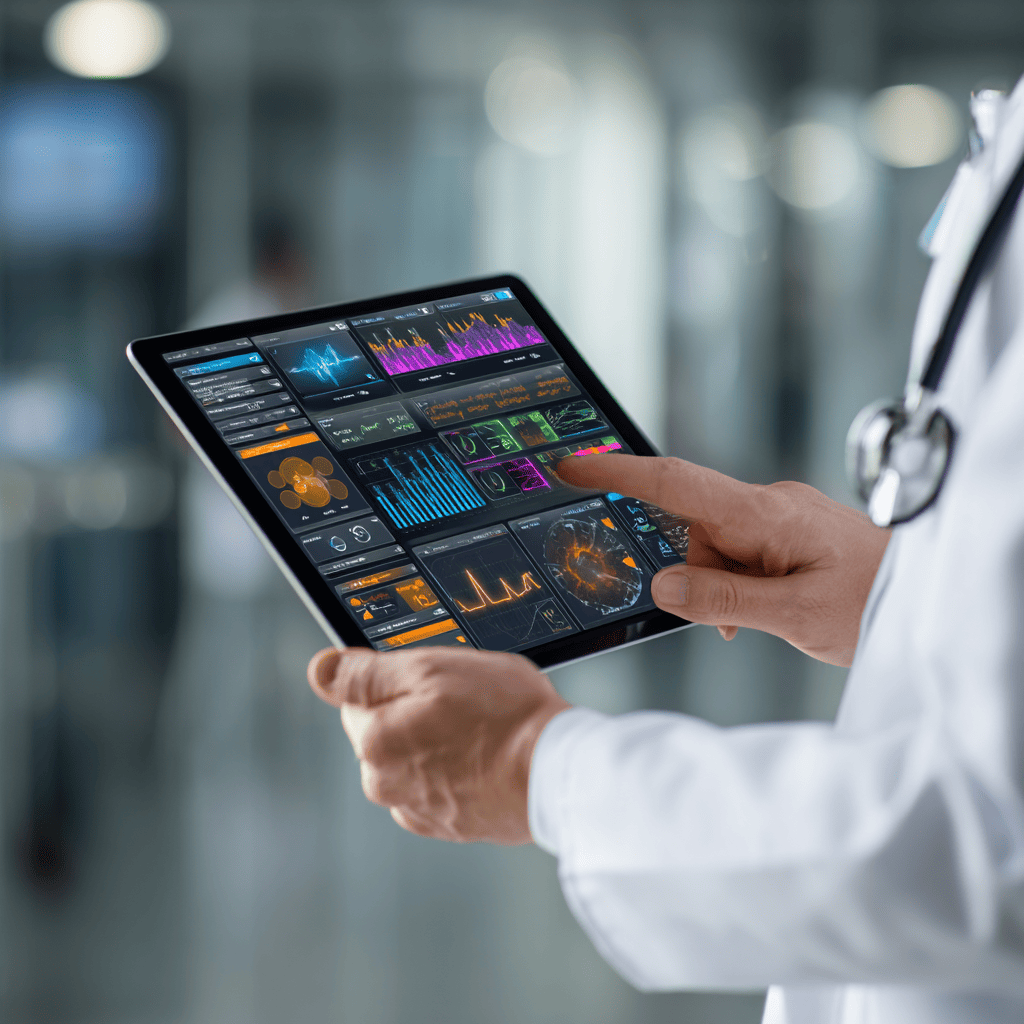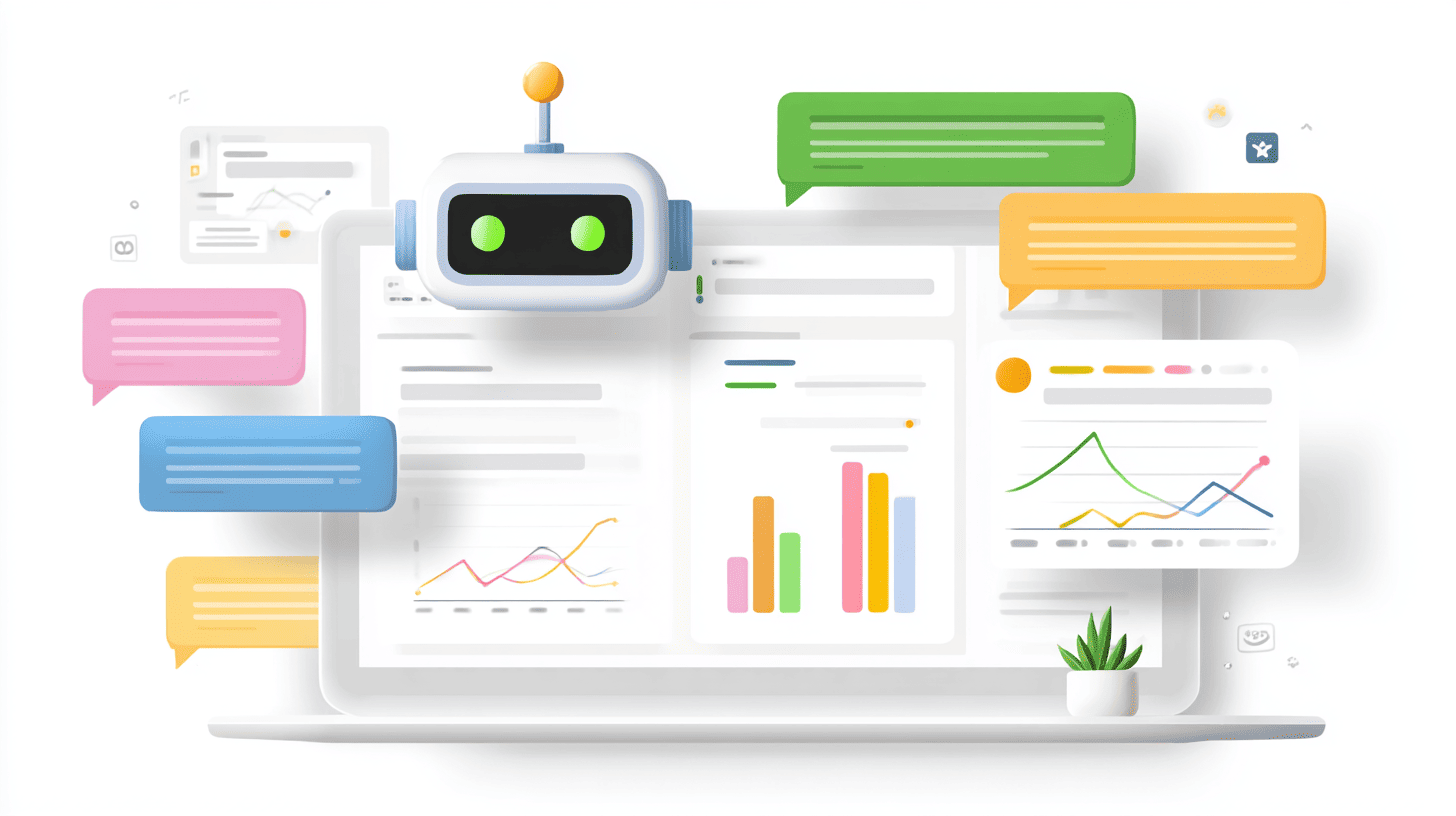The Future of Healthtech: What You Need to Know
Alexander Stasiak
Oct 21, 2025・10 min read
Table of Content
Emerging Healthtech Trends
Personalised Medicine Advances
Telemedicine and Remote Care
Artificial Intelligence in Diagnosis
Healthtech and Data Security
Privacy Concerns and Solutions
Regulatory Challenges
Impact on Patient Care
Improved Access to Services
Patient Empowerment
Challenges Facing Healthtech
Ethical Considerations
Technological Limitations
Future Predictions
Integration with Wearable Tech
The Role of Blockchain Technology
Ready to build your next digital health solution?
Let’s bring your healthtech idea to life with expert development and innovation.👇
The way we manage our health is shifting faster than you might expect. Healthtech development isn’t just about new gadgets—it’s reshaping how care reaches you every day. If you want to stay ahead of these changes, understanding what’s coming next is key. Let’s break down what the future holds for healthtech and why it matters to you.
Emerging Healthtech Trends

The world of health technology is rapidly changing, bringing new opportunities and challenges. Let's explore the latest trends shaping this exciting field.
Personalised Medicine Advances
Imagine a world where your treatment is as unique as your fingerprint. That's the promise of personalised medicine. By analysing your genetic makeup, doctors can tailor treatments just for you. This targeted approach can lead to better outcomes and fewer side effects.
Consider this: In one study, cancer patients saw a 30% increase in survival rates with personalised therapies. This is a game-changer. But it's not just cancer. From diabetes to heart disease, personalised strategies are reshaping care across the board.
But there's more to the story. As promising as it sounds, personalised medicine faces hurdles. Access to genetic data raises privacy questions. And, the cost of these treatments can be high. Despite these challenges, the potential benefits make it a trend worth watching.
Telemedicine and Remote Care

Gone are the days when seeing a doctor required leaving your home. With telemedicine, you can get care from your couch. This is especially useful for those in remote areas or with mobility issues. It means quicker consultations and less travel time.
A recent survey found that 75% of patients are open to virtual visits. This shift is not only convenient but also reduces healthcare costs. Clinics can see more patients, and patients save on travel expenses.
Yet, telemedicine is not without its critics. Some worry about the quality of care without face-to-face interaction. Plus, not everyone has access to the necessary technology. Despite these concerns, the trend of remote care continues to grow, promising easier access for many.
Artificial Intelligence in Diagnosis
Artificial Intelligence (AI) is making waves in health diagnosis. By sifting through vast amounts of data, AI can spot patterns that humans might miss. This could lead to earlier detections and improved treatment plans.
Take, for example, AI's role in detecting diseases like Alzheimer's. Studies show that AI can predict the onset of Alzheimer's with up to 85% accuracy. This early detection can be crucial for managing the disease.
However, AI is not perfect. There's a risk of over-reliance on machines. Human oversight is still crucial. But as AI technology improves, it will likely become an invaluable tool in healthcare, offering insights that save lives.
See how we transformed an idea into a full-fledged healthtech app for dementia care — read the case study: Simon Care – MVP built in 5 months.
Healthtech and Data Security

With innovation comes new challenges, particularly in data security. As healthtech relies more on data, keeping it safe is crucial.
Privacy Concerns and Solutions
Your health data is valuable. But with increased digitalisation, it becomes a target for hackers. Ensuring its safety is not just a technical challenge; it's a trust issue. People need to feel their data is secure.
One way to tackle this is through encryption. This technology scrambles data, making it unreadable without the right key. It’s like having a digital lock on your information. This step is vital as health records become increasingly digital.
Still, no system is foolproof. Regular updates and audits are necessary to stay ahead of threats. The more robust the security, the more confident you can be in digital health solutions.
Regulatory Challenges
Healthcare regulations are complex, and adapting them to new technologies isn't straightforward. Laws must evolve to cover innovations like AI and telemedicine. This ensures safety without stifling progress.
For instance, consider the hurdles in getting new healthtech approved. Regulatory bodies require extensive testing, which can slow down implementation. However, these checks are vital for ensuring new tools are safe and effective.
Balancing innovation with regulation is tricky. But it's necessary to ensure that healthtech advances benefit everyone without compromising safety.
Impact on Patient Care
The real measure of healthtech's success lies in its impact on patient care. Let's look at how it's changing the way you receive treatment.
Improved Access to Services
Healthtech is breaking down barriers to healthcare. From rural areas to underserved communities, tech is bringing services to those who need them most. This means more people can receive timely care.
Consider how mobile clinics use technology to reach outlying areas. These clinics, equipped with the latest tech, can offer diagnostics and treatments on the go. With over 60% of rural residents lacking easy access to hospitals, these mobile solutions are crucial.
But tech isn't a cure-all. Infrastructure and training are needed to support these initiatives. Yet, the potential for improved access is undeniable, paving the way for more inclusive healthcare.
Patient Empowerment
The more you know, the better decisions you can make about your health. Healthtech is putting information at your fingertips, empowering you to take charge of your care.
Apps and wearable devices track everything from heart rate to sleep patterns. This data helps you understand your health better. For example, fitness trackers can motivate you to exercise more, improving your overall well-being.
Yet, it's easy to become overwhelmed by data. Knowing how to interpret it is key. As tech continues to evolve, patient education will be vital in helping you make the most of these tools.
Challenges Facing Healthtech

Despite its promise, healthtech faces significant challenges that need addressing to unlock its full potential.
Ethical Considerations
With great power comes great responsibility. As tech advances, ethical questions arise. Who owns your health data? How should it be used? These are critical issues that need careful thought.
One concern is the potential for bias in AI systems. If the data used to train these systems isn't diverse, it can lead to skewed results. This could affect diagnosis and treatment, particularly for minority groups.
Addressing these ethical issues is essential. By ensuring fairness and transparency, healthtech can earn trust and maximise its positive impact.
Technological Limitations
No technology is perfect. While healthtech offers many benefits, it also has limitations. For instance, AI can misinterpret data, leading to incorrect diagnoses. Technology can also fail, causing delays or errors in care.
Moreover, reliance on tech requires robust infrastructure. Not all regions have the necessary resources, which can widen the gap in healthcare access. It's a reminder that while tech can enhance care, it's not a replacement for human expertise.
Future Predictions

Looking ahead, certain predictions are on the horizon for healthtech, promising to revolutionise the industry further.
Integration with Wearable Tech
Wearable technology is becoming more sophisticated, offering new ways to monitor health. Devices like smartwatches now track more than just steps—they monitor heart health, stress levels, and even detect falls.
This integration offers real-time insights into your health, allowing for proactive care. For example, a smartwatch could alert you to potential health issues before they become serious, offering a 50% reduction in emergency visits for some users.
However, the success of wearables depends on their adoption and accuracy. As they become more advanced, they could become an essential part of preventive healthcare.
The Role of Blockchain Technology
Blockchain is a buzzword, but its potential in health is enormous. By securely storing data, blockchain can enhance privacy and reduce errors. It's like having a digital ledger that can't be altered, ensuring data integrity.
In the future, blockchain could revolutionise how we handle health records. Patients could have control over their data, deciding who gets access. This would not only improve privacy but also streamline the sharing of information across providers.
Yet, blockchain is still in its early stages. For it to become mainstream, it needs widespread adoption and regulatory support. But its potential to transform data management in healthcare is immense.
In summary, healthtech is poised to reshape healthcare as we know it. By staying informed and embracing these changes, you can take advantage of the benefits it brings.
Digital Transformation Strategy for Siemens Finance
Cloud-based platform for Siemens Financial Services in Poland


You may also like...

AI in regulatory compliance
Explore how artificial intelligence is redefining compliance, risk management, and efficiency across industries.
Alexander Stasiak
Nov 26, 2025・8 min read

AI applications in finance
From automating routine tasks to improving fraud detection and investment strategies, AI applications in finance are driving faster, smarter, and safer decisions across the industry.
Alexander Stasiak
Oct 29, 2025・8 min read

Chatbots in financial services
Tired of waiting on hold for simple banking questions? Chatbots are reshaping financial services by automating customer interactions, providing instant support, and delivering personalised financial insights—anytime, anywhere.
Alexander Stasiak
Nov 03, 2025・10 min read
Let’s build your next digital product — faster, safer, smarter.
Book a free consultationWork with a team trusted by top-tier companies.








